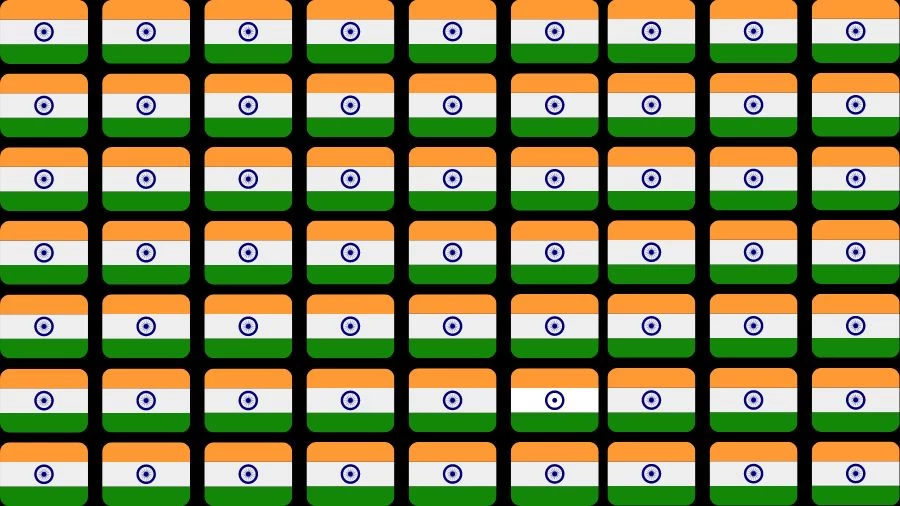Hidden Odd Flag Optical Illusion
These days, optical puzzles are all over social media, and when it comes to solving them, people are scratching their heads. By exercising the brain a little, regular practice of optical illusions has substantial benefits, such as improving the ability to concentrate and observe details.
Furthermore, it aids in the growth of a more informed intellect. Puzzles, artwork, brain teasers, and visual illusions are all examples of optical illusions. Now we have for you another unique and awesome Odd Flag optical illusion below.
What are the different types of optical illusion?
There are many different types of optical illusions, but here are some common ones:
- Geometric Illusions – These illusions involve geometric shapes, such as squares, rings, and circles, and how they appear to change size or shape based on their surroundings.
- Ambiguous illusions: These illusions can be seen in more than one way, and the brain has to choose between the different interpretations. For example, the famous “duck-rabbit” illusion can be seen as either a duck or a rabbit.
- Motion Illusions: These illusions give the impression of movement or movement, even when there is none. An example is the “spinning snakes” illusion, where stationary images appear to be in motion.
- Color Illusions: These illusions involve the way colors appear to the eye. For example, the “checkered shadow” illusion shows two squares of different shades of gray that appear to be the same color due to the shadows around them.
- Tactile Illusions: These illusions involve the sense of touch, such as the “rubber hand” illusion, where a person feels as if a rubber hand is their own.
- Cognitive illusions: These illusions involve the way the brain interprets information, such as the “Stroop effect,” where the brain struggles to process conflicting information, such as reading the word “blue” when it’s written in red ink.
These are just a few examples of the different types of optical illusions that exist. Each one is unique and can be used to explore different aspects of perception and cognition.
Try to find the odd flag in this optical illusion if you are a genius
Natural optical illusions are fascinating because they challenge our ability to see our surroundings. In addition, it offers important information about how the human brain works.
For years, researchers have been examining how optical illusions affect the human brain and have developed a series of experiments that demonstrate how different parts of the brain respond to optical illusions.
The time has come to test your powers of observation. Take this Odd Flag optical illusion quiz and find a hidden Odd Flag in 12 seconds.

Take a deeper look if you initially think there isn’t a strange flag in the image that is hidden. Look at the picture carefully… Focus… Don’t give up… Okay, you’re almost done. Time flies…
3…2…1…0. stop now. Congratulations if you have found the Odd Flag. If you’re still having trouble finding it, scroll down to find the solution.
Find the odd flag here
A strange flag is not easily visible to most people, but if you do find it, your eyes are definitely sharp and you are a genius at optical illusions. Well, if you don’t see it, don’t worry, we are here to help you. In case you can’t find it, here’s the answer.
Ok, come on, 1…2…3… Look below. If you are interested in finding optical illusions, don’t worry, our site has many more like this one for you to enjoy. Dive into our site and try to find more optical illusions like this one and enjoy finding them.

Disclaimer: The above information is for general informational purposes only. All information on the Site is provided in good faith, however, we make no representations or warranties of any kind, express or implied, regarding the accuracy, adequacy, validity, reliability, availability, or completeness of any information on the Site. .
Categories: Optical Illusion
Source: hellokitty.edu.vn
